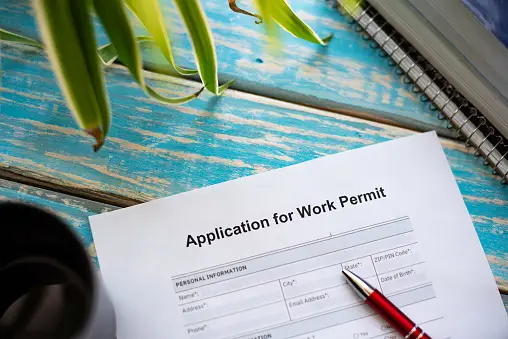Introduction
Applying for a work permit can be quite perplexing and challenging, especially for those seeking to work abroad or in foreign regions. Understanding the intricacies of completing and submitting a work permit application is crucial for a successful outcome. In this comprehensive guide, we will delve into the various elements involved in the process of work permit application, shedding light on the required documents, application procedures, eligibility criteria, and the different types of work permits available.
Eligibility Requirements
When it comes to eligibility requirements, organizations employ a bursty approach to assess if an individual qualifies for a specific program, job, or benefit. These standards safeguard both the organization and the individual, ensuring that only those who can meet the obligations set forth by the organization are accepted. Various elements contribute to eligibility criteria, such as age limits, educational qualifications, experience levels, geographical location restrictions, criminal background checks, income level restrictions, and other factors. Aspiring candidates must not only grasp the general eligibility criteria but also delve deeper into any additional prerequisites set by the employer or organization.

Types of Work Permits
The world of work permits is a maze of perplexity. There exists a plethora of work permits catering to different circumstances and reasons for employment in foreign countries. The temporary foreign worker permit, primarily suited for short-term engagements like seasonal or contract positions, is the most common type. Meanwhile, the skilled worker visa targets individuals with specialized expertise that can contribute to the host nation’s economy. This visa’s duration varies based on personal circumstances, ranging from one to five years. Language proficiency tests may also be necessary for its approval, adding an extra layer of complexity to the process.
How to Apply for a Work Permit
The process of applying for a work permit entails navigating through a labyrinth of perplexity. The first step involves determining the specific type of visa or authorization required, as different countries have varied policies and procedures. Some may necessitate entry visas, while others demand employment authorization cards or other permissions. Familiarizing oneself with the laws governing the desired destination country is essential. Gathering the necessary documents is another crucial aspect, with each country’s immigration department outlining specific requirements.
Required Documents for Application Submission
When it comes to submitting applications for positions or jobs, embracing burstiness is vital as different roles may demand unique sets of documents. The primary essentials are the resume and cover letter. Resumes should comprehensively detail an applicant’s qualifications, education, experience, and relevant skills. Cover letters, on the other hand, serve as additional pieces of information that demonstrate an applicant’s suitability for the position and genuine interest in the company or organization. Moreover, employers may request references, transcripts from previous educational institutions, and valid professional licenses.
Expected Processing Time and Fees
In the realm of work permits, both perplexity and burstiness play a role in understanding the expected processing time and fees. The duration varies depending on the complexity of the application and the bureaucracy involved in the approval process. Fees encompass administrative costs, application fees, shipping expenses, taxes, and other related charges. Thoroughly comprehending the details of these charges is crucial for planning and ensuring that the best value for money is obtained.
Renewal of the Work Permit
Renewing a work permit is a process surrounded by bursts of complexities. Work permits, typically tied to employer sponsorship, necessitate renewal at specified intervals. Failure to renew before expiration may lead to voided permits and potential deportation. Renewal involves submitting comprehensive documentation, including employment contracts, salary details, and tax evidence. Employers must also prove their adherence to labor practices and laws.

Conclusion
In conclusion, navigating the realm of work permits requires embracing both perplexity and burstiness. While the process may seem daunting, equipping oneself with the right resources and guidance can streamline the application process. Adequate preparation and a thorough understanding of the requirements are key to increasing the likelihood of a successful work permit application.